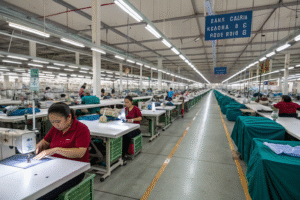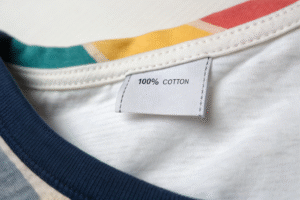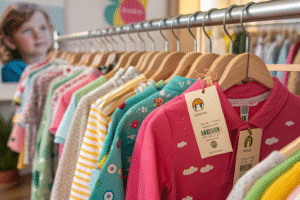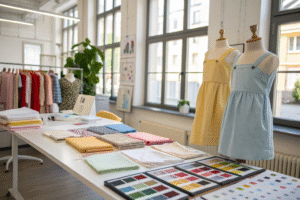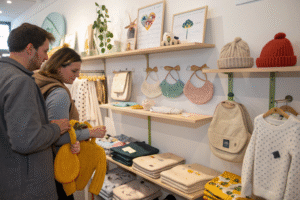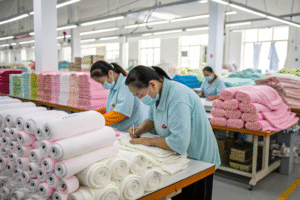Selling babywear online can be a profitable business—if you choose the right platform, price strategically, and build real trust with parents.
To make money selling baby clothes online, choose the best eCommerce channels, price for profit, market to parents effectively, and focus on repeat customers.
Here’s a practical guide to help you turn your babywear idea into a growing, profitable online brand.
Best Platforms to Sell Babywear Online for Profit?
Choosing where to sell is your first major decision. Your platform affects your visibility, margins, and growth speed.
To sell baby clothes profitably, use platforms like Shopify, Etsy, Amazon, Faire, or your own website—depending on your brand style and business goals.
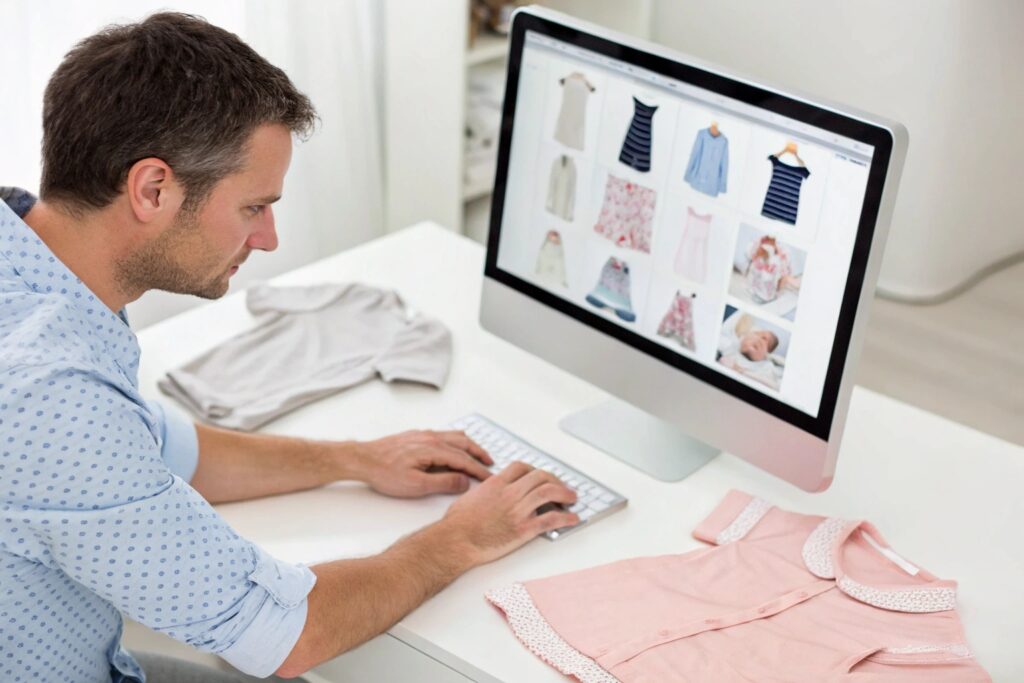
What online platforms work best for different babywear business models?
| Platform | Best For | Fees / Pros / Cons |
|---|---|---|
| Shopify | Brands wanting full control | Monthly fee, full customization |
| Etsy | Handmade or custom babywear | Low startup cost, niche audience |
| Amazon | High-volume basics | High competition, brand registry required |
| Faire | Wholesale buyers, boutiques | Access to stores, brand approval needed |
| Social Selling (IG, TikTok Shop) | Trending designs or DTC drops | Low barrier to entry, depends on content |
Most successful sellers start on Shopify or Etsy, then scale into wholesale (Faire) or broader retail (Amazon).
At Fumao, we supply brands who began with Etsy shops and now move 10,000+ units a month via DTC and wholesale.
Should you use your own website or a marketplace?
It depends on your strategy:
- Marketplace = fast traffic, lower margins
- Own website = slower start, better branding & profits
We recommend starting with both: test products on Etsy or Faire while building a branded Shopify site in the background.
How to Price Baby Clothes for Online Marketplaces?
Pricing is where many new brands fail. Set it too low—you’ll lose money. Too high—you’ll lose sales.
Use cost-based pricing plus competitor research to set retail prices that cover your costs, provide value, and still attract customers.
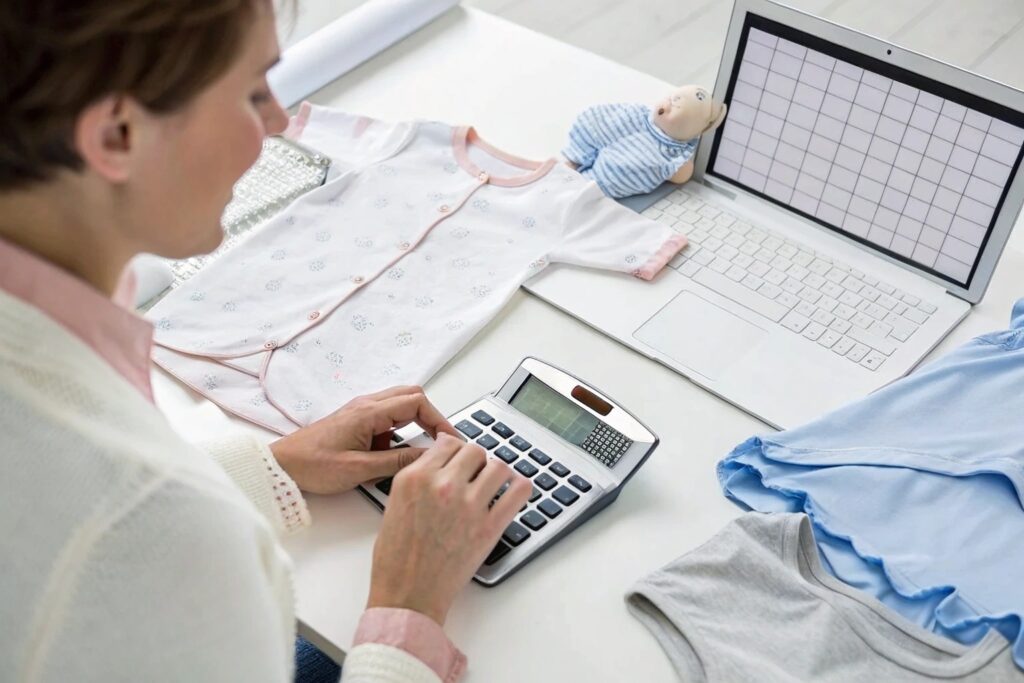
How do you price for profit in babywear?
Use this formula:
Retail Price = (Cost of Goods + Shipping + Fees) × Markup
| Item | Example Cost (USD) |
|---|---|
| Romper COGS | $4.50 |
| Shipping per piece | $1.00 |
| Etsy fees (5% + $0.20) | ~$0.60 |
| Packaging | $0.30 |
| Total Cost per Unit | $6.40 |
| Retail Price (2.5x markup) | $15.99 |
This gives you enough margin to cover returns, promotions, or paid ads.
You can price higher if you offer:
- Organic or custom babywear
- Eco-friendly or ethical production
- Branded packaging or gift boxes
- Niche product types (preemie wear, sibling sets)
How do you stay competitive without cutting too much?
Avoid underpricing by:
- Bundling items (3-pack bodysuits)
- Offering value (free shipping after $40)
- Emphasizing your brand story and product benefits
- Using “anchor pricing” (e.g. crossed-out $22 → now $18)
Fumao clients often sell babywear with a 3–4x markup when branded well and targeted correctly.
What Marketing Strategies Attract New Parents?
New parents scroll, search, and shop online—especially during pregnancy and early infancy. The right messaging brings them to you.
Use emotional storytelling, influencer content, email flows, and SEO to attract parents searching for safe, cute, and thoughtful babywear.
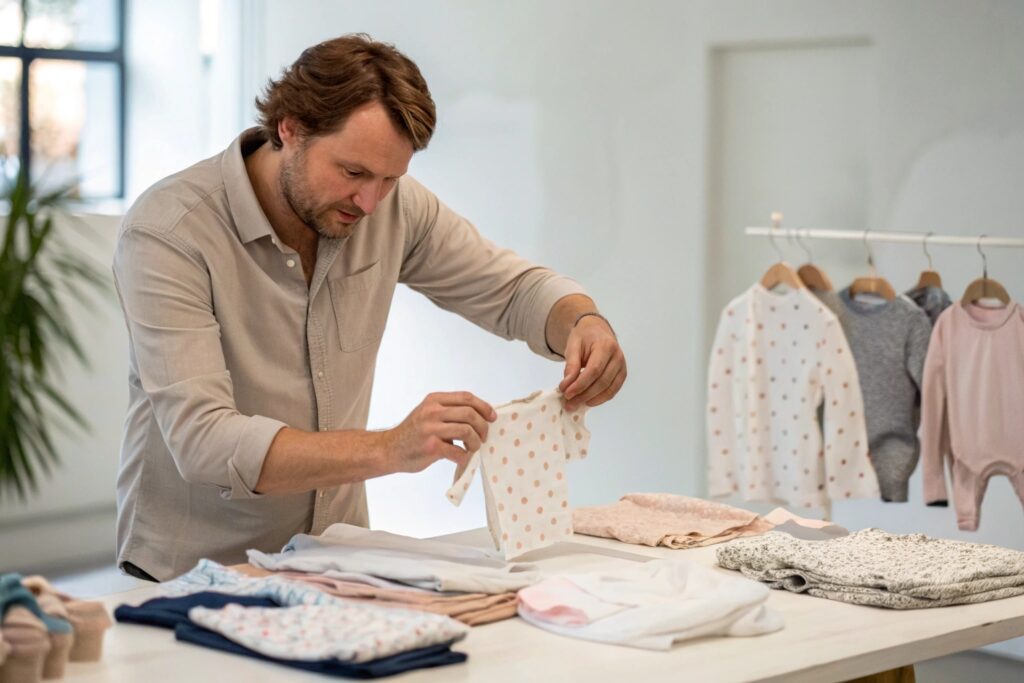
What types of content drive babywear sales?
Here’s what converts:
| Content Type | Example Ideas |
|---|---|
| User-Generated Photos | Babies in your clothes = instant trust |
| Short videos / Reels | “Newborn outfit unboxing,” “1-month photo set” |
| Brand Storytelling | “Why I started my baby brand…” |
| Comparison Content | “Organic vs. synthetic babywear” |
| Behind-the-Scenes | Production, packaging, founder process |
Social proof is key—buyers want to see your clothes on real babies, not just flatlays.
What tools or ads should you use to get started?
- Meta Ads (IG + FB) – Target pregnant parents or new moms
- Email flows – Welcome series, gift guides, birthday reminders
- Pinterest Pins – Baby shower gift ideas, milestone outfit boards
- SEO Blog Posts – “Best babywear for summer,” “How to dress a newborn”
- Affiliate tools – Offer codes to bloggers or influencers
At Fumao, we’ve helped clients launch viral babywear videos using trending audio + parent testimonials. That combo builds reach and trust.
Tips to Build a Loyal Customer Base for Baby Apparel?
One-time sales are good—repeat buyers are better. A loyal customer can come back every month as their baby grows.
To build loyalty, focus on consistent quality, great service, memorable packaging, and ongoing communication through email and social.
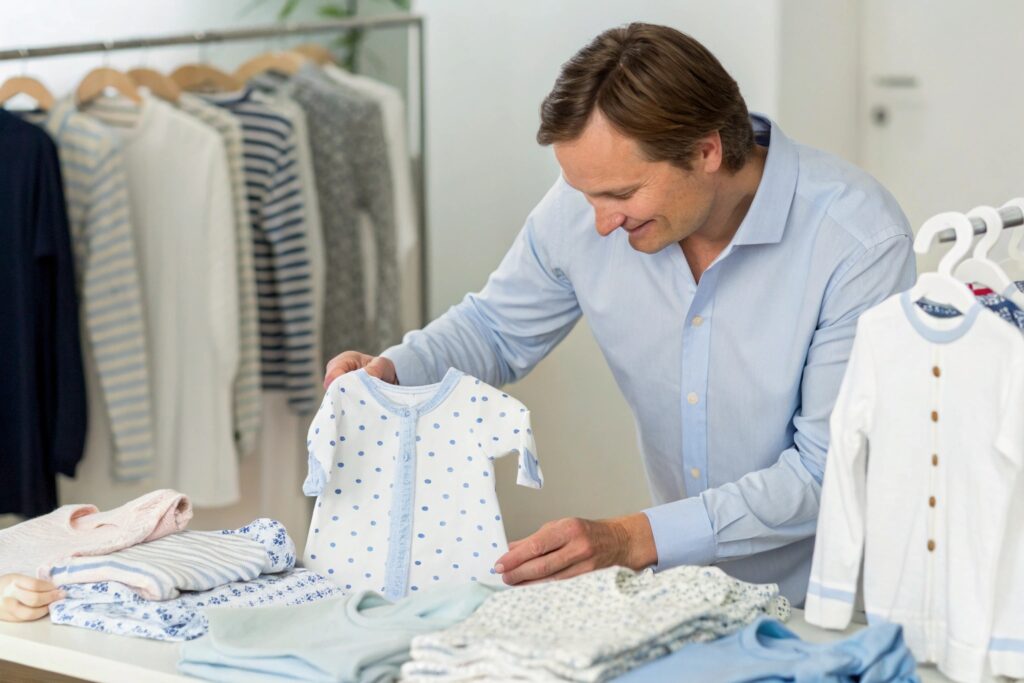
How can babywear brands turn first-time buyers into loyal fans?
Start with:
| Loyalty Tactic | Why It Works |
|---|---|
| Thank-you notes in packaging | Personal touch = emotional connection |
| Size-up reminders via email | Makes reorders easier |
| First birthday gift codes | Encourage repeat purchase + referral |
| Milestone collection drops | Create anticipation and habits |
| UGC or review contests | Build community around your brand |
One Fumao client sends a “Happy Half Birthday” email to buyers 6 months after their first order—with a discount code. Their reorder rate? Over 25%.
What platform features support customer retention?
Use:
- Email platforms like Klaviyo or Mailchimp
- Subscription tools (e.g., quarterly outfit boxes)
- Loyalty points or referral codes
- Personalized SMS updates for order + new drop alerts
The key is to stay top-of-mind—because babies grow fast, and parents shop often.
Conclusion
Making money with babywear online is 100% possible. With the right platform, pricing, marketing, and customer experience, you can turn your babywear ideas into a profitable brand that parents trust—and return to again and again.


